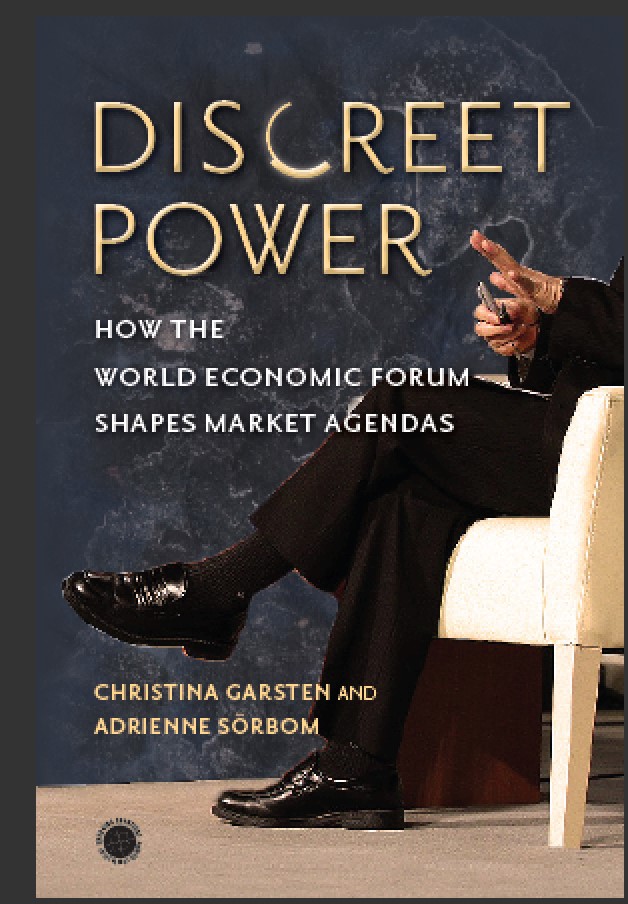Discreet Power: World Economic Forum and Global Governance
Public lecture in organisational anthropology with Professor of Social Anthropology Christina Garsten.
Oplysninger om arrangementet
Tidspunkt
Sted
Auditorium 1441-012, Aarhus Universitet, Tåsingegade 3, 8000 Aarhus C

In their new book, Christina Garsten and her co-author Adrienne Sörbom want to convey how the World Economic Forum (WEF) works to push its ideas by way of seduction and what they call discretionary governance at the transnational level - the exercise of a discreet form of power and control according to the judgment of the Forum and its members, in ways that escape established democratic controls. They aim to demonstrate how the Forum, together with its funders and invitees, contribute to shaping a political mandate with a significant yet fragile global sway. Through the strategic use of seductive communicative actions, the WEF and its leaders endeavor to shape the interests and priorities of others, attracting and enticing them into engaging with political issues defined by the Forum and running with them. In the broad sense, seduction entails drawing people in and holding them in one’s thrall. It involves radiating some quality that attracts others and stirs their emotions and influences their thoughts in ways desirable to the seducer. Thus seduction is intimately tied up with discretionary governance - the practice of a discreet and subtle form of soft power that works more effectively than coercion.
All are welcome.
About Christina Garsten:
Christina Garsten has been a Professor of Social Anthropology at Stockholm University since 2008 and since 2011 she has been Chair of the Executive Board of the Stockholm Centre for Organizational Research. In 2018, she was appointed principal of the Swedish Collegium for Advanced Study.Christina Garsten’s research interests lie in organizational anthropology, with a special focus on globalization processes, sociocultural dynamics and forms of governance. Her current research focuses on the role of think tanks and policy professionals in the production and diffusion of knowledge and ideology, in influencing political decision-making processes and in shaping global governance. Particular attention is placed on the creation and use of future foresight activities and scenario creation as part of knowledge creation. Christina Garsten has also contributed to research on organizational culture and its transnational dynamics and to studies of organizational visions and practices of enhanced transparency and accountability in transnational trade. She has studied corporate social responsibility (CSR), new forms of voluntary regulation of business and the perspectives of corporate leaders on responsibility, ethics and profit. Garsten has also conducted extensive research on policy change in the labour market, such as the emphasis on flexibility, employability and learning and their implications for individual subjectivity and identity.
Arranged by Maja Hojer Bruun and Jakob Krause Jensen
